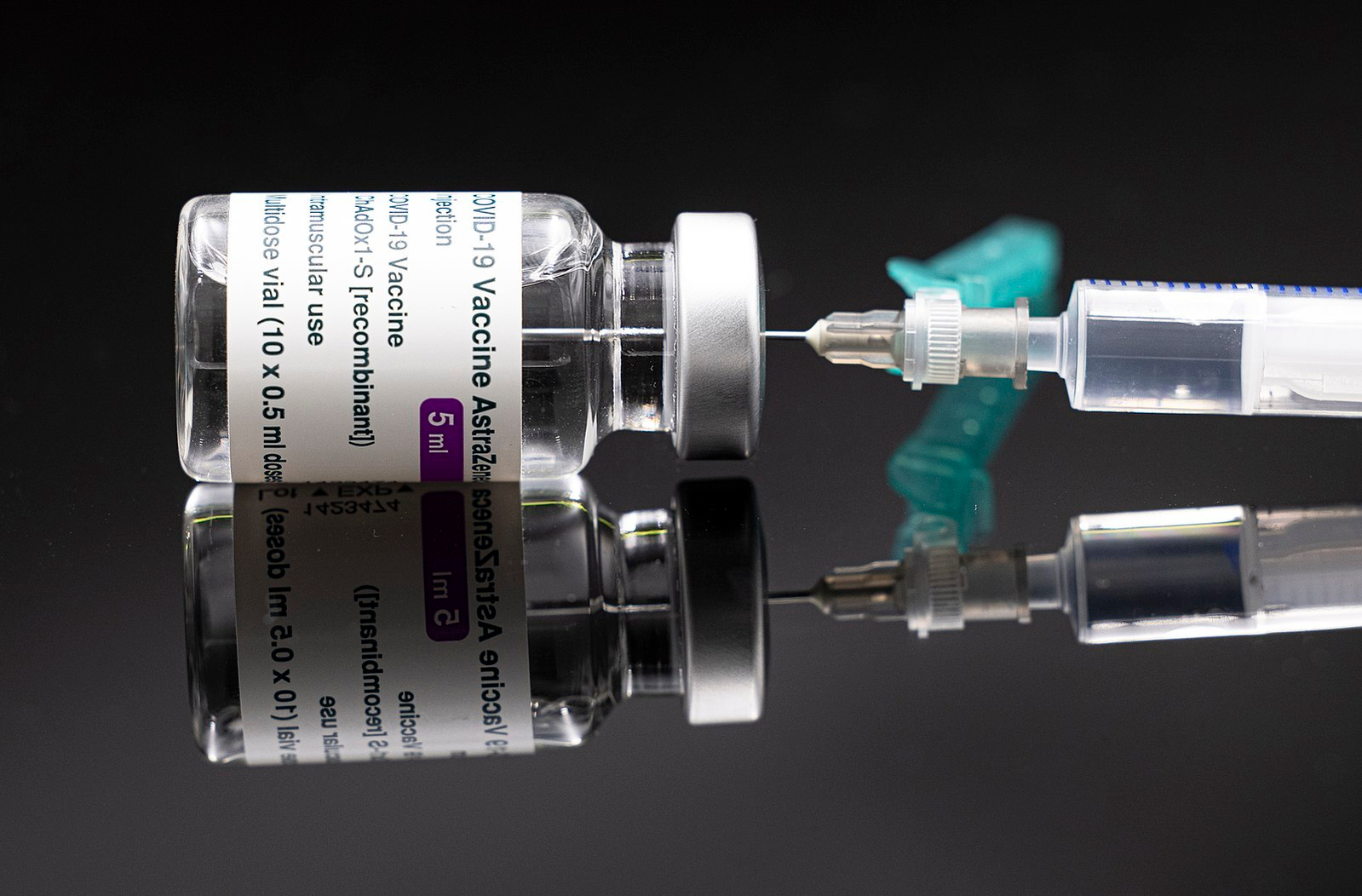By: nabeela khan
March 1 2024
Posts claiming 'new study links COVID-19 vaccine to adverse events' are alarmist

AstraZeneca COVID-19 vaccine. (Source: Arne Müseler/arne-mueseler.com/CC-BY-SA-3.0/Via Wikimedia Commons)
Following the publication of a study analyzing cases of adverse events of special interest (AESIs) linked to the COVID-19 vaccine, a flurry of newspaper headlines and social media posts warned of the 'serious health conditions associated with the vaccine.'
The study, which included data from over 99 million vaccinated individuals across eight countries, was published on February 12, 2024, by the Global Vaccine Data Network (GVDN) — a multinational collaboration that aims to assess vaccine safety. It highlighted rare instances of heart, brain, and blood disorders related to vaccines produced by Pfizer, Moderna, and AstraZeneca.
While the newspaper articles provided explanations of the study, some headlines were sensationalized and taken out of context on social media, branding the vaccines as "unsafe and ineffective" and further fueling anti-vaccine sentiments online.
Posts sharing newspaper headlines without context. (Source: X/GBN/Gateway Pundit/Screenshot)
What does the study say?
The study examined 13 medical conditions, such as the risk of heart-related inflammation and an increased risk of a type of blood clot in the brain, categorized as "adverse events of special interest."
AESIs are conditions recognized to be associated with vaccination. Essentially, this study assessed the potential safety of vaccines, a topic of discussion since 2021. It found that COVID-19 vaccines are linked to rare occurrences of these conditions, which are only detectable in large populations. Despite these findings, multiple studies have concluded that the vaccines' benefits far outweigh the risks.
What about the conditions being discussed?
The study focused on pre-established safety signals (adverse events that are already known to us), including myocarditis (inflammation of the heart muscle) and pericarditis (inflammation of the sac surrounding the heart), associated with mRNA vaccines like Pfizer and Moderna. It confirmed rare cases of these conditions following the administration of the first, second, and third doses of Pfizer-BioNTech’s and Moderna’s mRNA vaccines.
It also investigated Guillain-Barré syndrome (muscle weakness and altered sensation) and cerebral venous sinus thrombosis (a type of blood clot in the brain) linked to viral vector vaccines (AstraZeneca-Oxford and Johnson & Johnson), confirming rare occurrences.
So, what's new?
The research introduced an analysis of possible safety signals for transverse myelitis (inflammation of part of the spinal cord) following viral vector vaccines and acute disseminated encephalomyelitis (inflammation in the brain and spinal cord) after both viral vector and mRNA vaccines. It suggested a possible link between the Moderna and AstraZeneca vaccines and rare neurological conditions, indicating the need for further study.
However, despite identifying potential links, the study concluded these events are rare.
What did the authors say?
Dr. Helen Petousis Harris, a vaccinologist and co-director of the Global Vaccine Data Network, and an associate professor at the University of Auckland, commented on the rarity of these occurrences, stating, "The risk of experiencing a vaccine-associated thrombotic event is lower than being struck by lightning. The risk of experiencing vaccine-associated acute disseminated myelitis is even rarer — less than one in a million doses."
She emphasized that the findings corroborate what is already known about these events and the slight increased risk some vaccines carry. “The fact that some of these conditions are so rare that it requires many people to be vaccinated to detect them attests to this,” she told Logically Facts.
The study confirms the known risks of COVID-19 vaccines, offering a better understanding of rare events thanks to its large scale (99 million participants), enabling the detection of rarer safety signals that previous studies may have missed.
The Centers for Disease Control and Prevention (CDC) affirms the safety of the widely used COVID-19 vaccines, noting that while some individuals may experience side effects post-vaccination, others may not. Like all medicines, vaccines also carry some risks.
Moreover, regulatory bodies closely monitor adverse events, reporting them promptly. The surveillance of COVID-19 vaccines is exceptionally thorough, including monitoring for 'adverse events of special interest' not only for vaccines but also for the disease itself.


